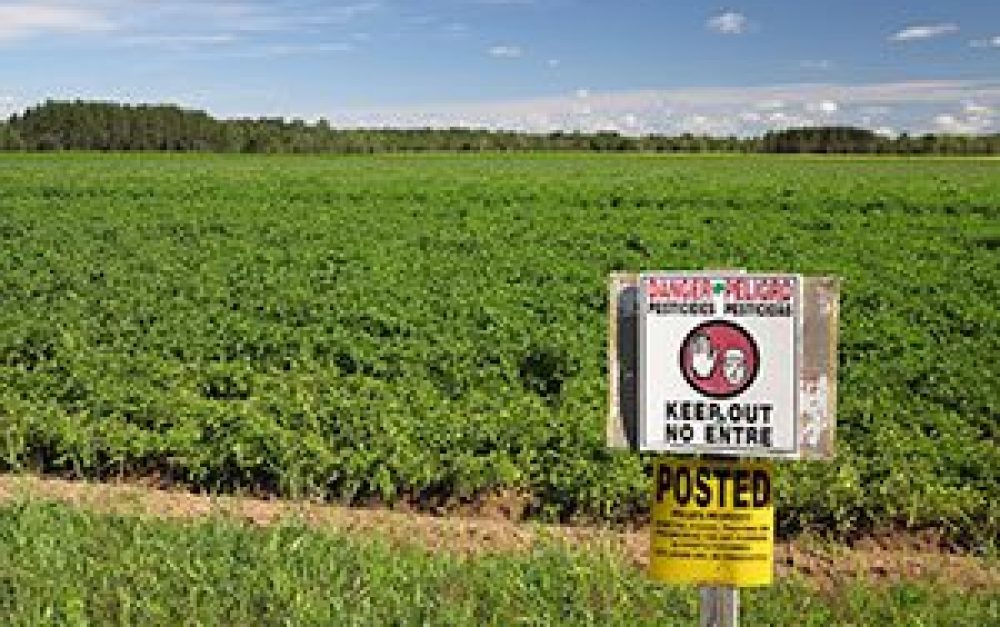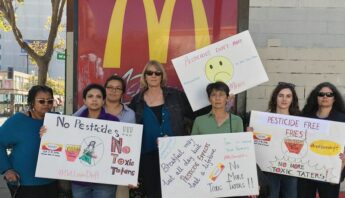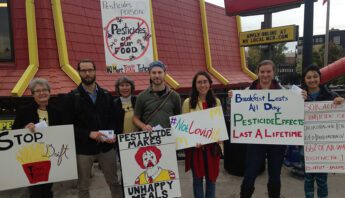Something courageous happened today. A small group of farmers and rural residents dared to hold McDonald’s accountable to its promises. Since 2006, PAN has been working with a grassroots coalition of farmers and White Earth tribal members to document the pesticide problem in the potato-producing regions of Minnesota.
Now, after seven years of talking to agencies, testifying in the state legislature and negotiating with the producer, community members are stepping into the public eye and asking for support. The campaign is called Toxic Taters, and the request is simple: McDonald’s has promised to reduce pesticide use in the production of their potatoes. It’s time for the company to make good on that promise.
McDonald’s pledged to reduce pesticide use in 2009, after results from Drift Catcher monitoring showed frequent pesticide drift coming from the potato fields of one of McDonald’s main suppliers, Ronald D. Offutt Company, or RDO.
Greenwash much?
The community met with McDonald’s representatives and explained the evidence — that toxic pesticides, including chlorpyrifos, chlorothalonil and 2,4-D, were drifting into their communities on a regular basis each summer.
In response, McDonald’s made a big public show of their commitment to reduce pesticides — winning them quite a bit of positive attention. The company had their producers take a survey about sustainable practices, but instead of publicizing actual reductions in pesticide use, they simply launched an ad campaign praising their potato producers.
Meanwhile in Minnesota, communities in the area continued to be plagued by drifting pesticides.
Real people, real impacts
Today the coalition held a press conference to announce their new campaign, and released a video featuring some of the residents who have been fighting the longest for clean air.
In the video, we hear from Bob Shimek, a member of the White Earth Nation, who had been working to make the school in the Pine Point community environmentally safe for children. Once the school was open and running, he realized that chemicals were floating into the school from potato fields across the road.
Bob explains why persistent pesticide drift is especially troubling for his community, which has already been displaced:
That place of the white clay that has been reserved for us. You know, we were supposed to come here, this was supposed to be a safe place for us to live in perpetuity. And, it’s not.
The video also highlights Don and Norma, small farmers who lost their sheep after potato production moved in next door. And Carol Ashley, who eventually sold her home to escape pesticide drift.
These community voices give us a more concrete understanding of what it means to face pesticides in the air, year after year.
Time for action
Today marks the start of a new approach for the Toxic Taters coalition. In addition to education and research, they are taking action — and they need our support.
Watch the video and sign the petition urging McDonald’s to do the right thing. Use social media to get these important stories heard. And stay tuned for their upcoming speaking tour and days of action.








